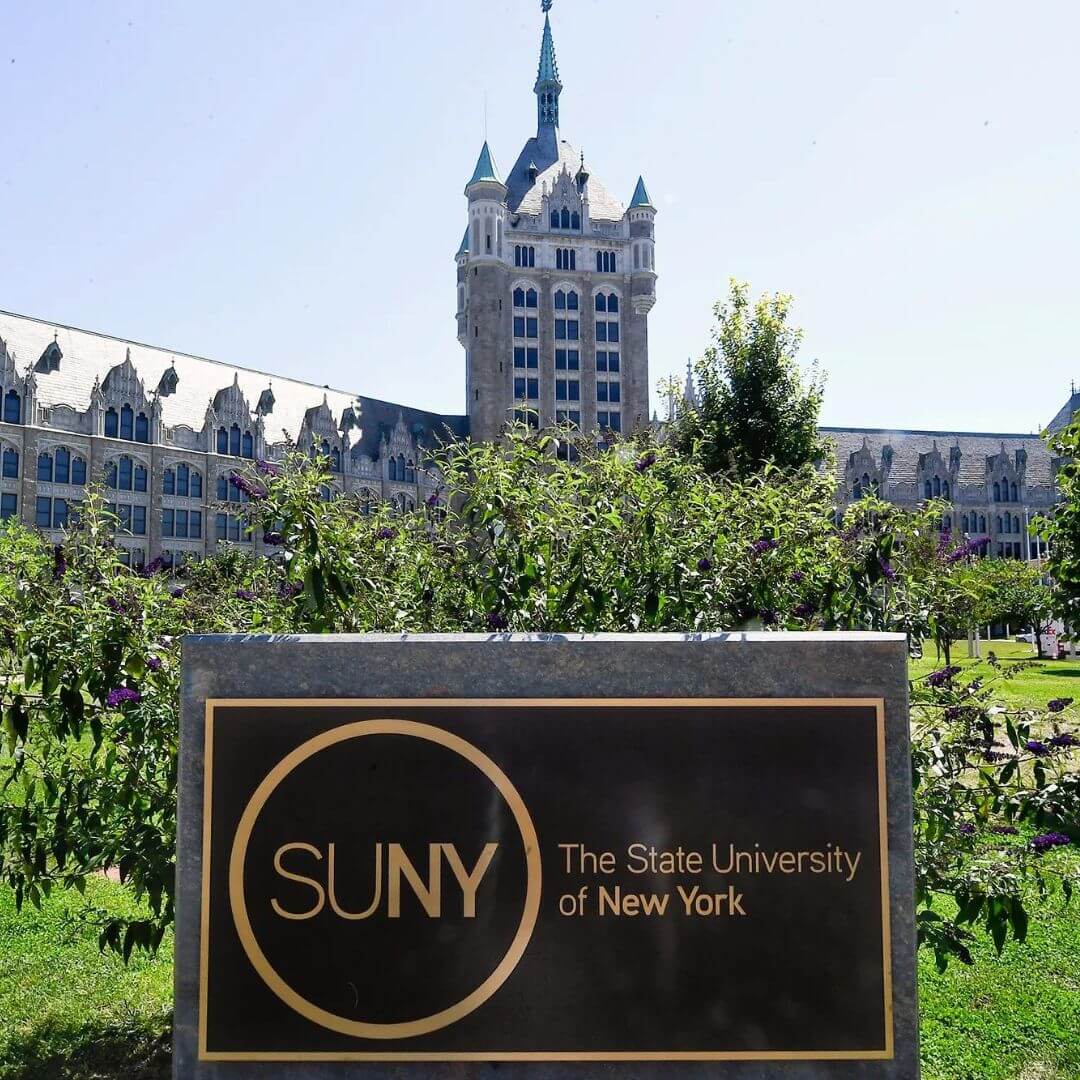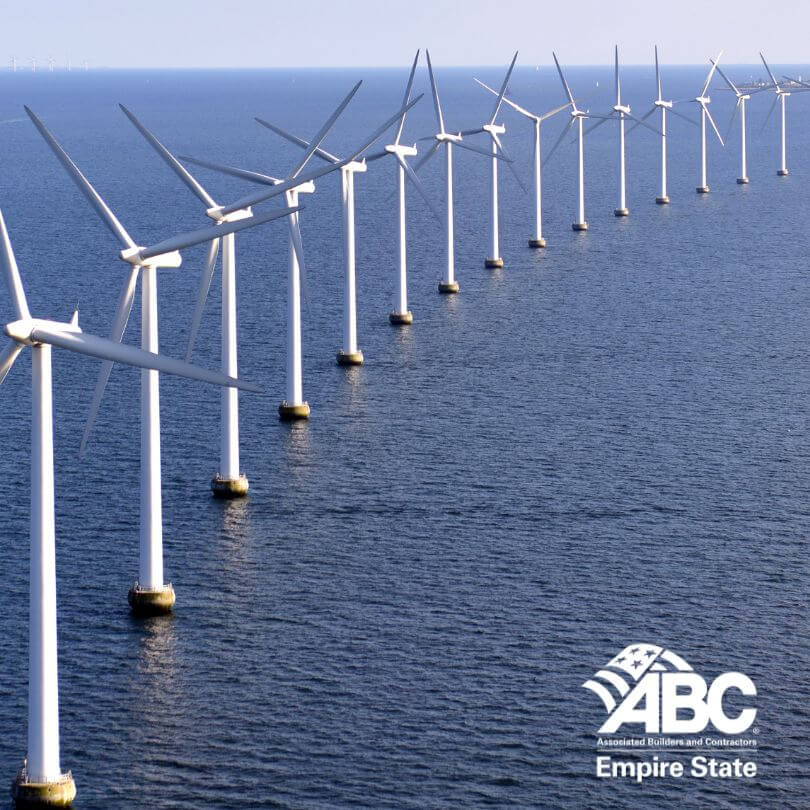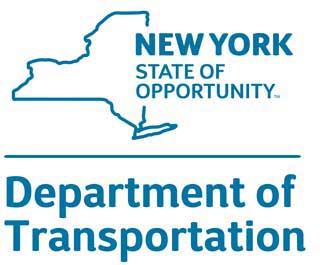ABC Members One-Stop Guide to the FY-25 State Budget
19 days late... New York State finally has a budget deal in place. Lawmakers passed a whopping $237 billion budget early Saturday evening. This budget is $8 billion more than last year's $229 billion budget. Most notably, the Governor made a deal on housing, which was one of the key parts holding up the final passage of the deal. Some critical items for ABC members include:
- Omission of NY Heat Act
- 421a extension; 485x Replacement
- Sunsetting of COVID Sick Leave
- PLAs on SUCF projects over $10M
For ABC members, our team has put together the following summary of the critical items included that will impact you. As always, if you have any questions, please don't hesitate to reach out.
Housing
Extension of 421-A Incentive Program (ELFA, Part T)
Extended the 421-A incentive program for vested projects to June 15th, 2031. The legislation keeps the same wage standards that were established in 2017.
Authorize Tax Incentive Benefits for Converting Commercial Property to Affordable Housing (ELFA, Part R)
Establishes the Affordable Housing from Commercial Conversion Tax Incentive Benefits program in NYC. The program aims to incentivize the inclusion of affordable rental units in multiple dwellings converted from commercial or manufacturing space.
Authorize New York City and the New York State Urban Development Corporation to Allow for Denser Residential Development (ELFA, Part Q)
Authorizes New York City and the NYS Urban Development Corporation to permit denser residential development.

Create New Tax Abatement for Rental Housing Construction (ELFA, Part U)
Establishes an Affordable Neighborhoods for New Yorkers Tax Incentive Program. The program's goal is to incentivize the development of housing that includes affordable units in NYC.
Fire Prevention and Building Code Council Study (ELFA, Part V)
Authorizes the Fire Prevention and Building Code Council to conduct a study related to standards for egress. The study shall include multi-unit residential buildings above three stories. The study shall be completed before July 1, 2026.
Housing Program Funding:
- Housing Program The final budget appropriates $20 million to support a comprehensive statewide multi-year housing program. Combined with other funds from 2016-17 and 2017-18, a total of $950 million is available to provide capital and operating subsidies for the development of 6,000 or more supportive housing units over the next five years.
- Infill Housing Program The final budget appropriates $40 million to support the construction, preservation, or rehabilitation of small infill homes in areas outside the city of NY. Priority is given to projects in the cities of Buffalo, Rochester, Syracuse, Albany, and Binghamton.
- New York City Housing Authority Program The final budget appropriates $140 million to support this program.
Labor

Mandating Project Labor Agreements on State University Construction Fund Projects Totalling $10M or more (ELFA, Part CC)
Mandates PLAs for "large-scale construction projects," which includes any project funded by the SUCF for which the total estimated cost of the contract or contracts is $10M or more. This shall take effect on all solicitations and bids after Jan 1st, 2025. The original version of this law had a threshold of $3 million or more; through our advocacy, the threshold was increased to $10 million.
Sunset of COVID-19 Sick Leave Law (ELFA, Part M)
The Enacted Budget sunsets the COVID-19 Sick Leave Law on July 31, 2025, one year later than initially proposed in the Executive Budget. The original law, enacted in 2020, requires employers to provide sick leave benefits, paid family leave, and benefits due to disability for employees subject to a mandatory or precautionary order of quarantine or isolation due to
COVID-19.
Establish Paid Prenatal Leave (PPGG, Part M)
Allows eligible pregnant employees to take up to 20 additional hours of paid personal leave for prenatal medical appointments. The permitted appointments may be used for health care services received by an employee during their pregnancy or related to such pregnancy, including physical examinations, medical procedures, monitoring and testing, and discussions with a health care provider related to the pregnancy.
The 20 hours are provided within a 52-week calendar period, available in hourly increments. Employees must be compensated at the employee's regular rate of pay or the applicable minimum wage established pursuant to section six hundred fifty-two of the Labor Law, whichever is greater. Employers are not required to pay employees for unused time. This will take effect on January 1, 2025.
Require Paid Breaks for the Expression of Breast Milk (ELFA, Part J)
Requires paid breaks for up to 30 minutes for nursing mothers. Employees who take an excess of 30 minutes would be permitted to be covered using existing paid breaks or mealtime.
Calculation of Weekly Unemployment Insurance Effective Date (ELFA, Part Z)
Extends the effective date of legislation from 2021 (Ch.277) related to partially unemployed workers and their ability to access unemployment insurance benefits. This bill extends the effective date of certain portions of the bill to the first Monday after October 1, 2024, and allows the effective date to be extended in 15-day increments by DOL to the Legislature. In addition, the effective date cannot be extended beyond February 1, 2025.
Energy & Environment
NYSERDA Build-Ready Program Extender (TED, Part M)
Extends the repeal date of the NYSERDA Build-Ready Program from April 19, 2024, to April 19, 2030. The Build-Ready Program identifies sites in New York State that may be suitable for development as large-scale renewable energy projects and advances those sites for eventual publicly noticed competitive solicitation to private renewable energy developers.
In addition, the Enacted Budget adds protections for agricultural land, an additional preference for dormant electric generating sites in siting such projects, and authorizes qualified energy storage systems to be included in the program.
Clean Water Infrastructure (A.8804-D/S.8404-D, p.176)
The new budget includes an additional $500 million in clean water infrastructure funding over two years, for drinking water and wastewater infrastructure, and water quality protection.
Environmental Protection Fund (A.8804-D/S.8404-D, p.154)
$400 million is appropriated for the Environmental Protection Fund (EPF), which provides funding for environmental programs such as land acquisition, farmland protection, invasive species prevention and eradication, enhanced recreational access, water quality improvement, and environmental justice.

New York Works Capital Infrastructure Program (A.8804-D/S.8404-D, p.170)
$90 million is approved for the New York Works statewide capital infrastructure program, plus $20 million in New York Works funding for construction at several dams (Conklingville, Sixth Lake and Old Forge). New York Works funding is used to improve access to State lands, rehabilitate campgrounds, a repair and rehabilitate dams, and upgrade DEC recreational facilities. Funding is also used for air monitoring infrastructure, remediating environmental contamination information technology, and repairs and maintenance of state infrastructure, state lands, and fish hatcheries.
Transportation

Extend the Authorization for Certain Department of Motor Vehicle Fees (TED, Part G)
This part extends certain Department of Motor Vehicle fees related to motor vehicle transactions—such as inspection, record searches, dealer and transporter applications, and title 14 certification—until April 1, 2026. This Part would also generate revenue for the Dedicated Highway and Bridge Trust Fund to be used for DMV expenses until April 1, 2026.
Important transportation funding:
- $333.2 million for upstate transit operating assistance
- $60 million for the Consolidated Local Street and Highway Improvement Program (CHIPs)
- $40 million the state Route NY Program
Critical Items Left Out of the Final Deal
NY Heat Act
Environmental advocates pushed for the inclusion of the Heat Act in the final budget proposal; however, they were unsuccessful. The legislation would have eliminated 100-foot natural gas hookups. The act was included in the Governor's and Senate proposals but omitted from the Assembly version and ultimately left out of the final budget deal.
No Increases to Paid Short Term Disability
Although the Governor and both houses had proposals on the table to increase the maximum benefit for short-term disability, they couldn't come to a final agreement, and no increase made it into the final budget deal. Hochul’s proposed increase would have raised the medical leave benefit from 50 percent of a worker’s average weekly pay to 67 percent, with a maximum of 67 percent of the average weekly wage of New York workers, as calculated annually for the prior year. The budget proposal would have phased in the benefit levels but would not reach its final amount until 2029. The Assembly proposed a similar increase.
The Senate proposed implementing an increase over a three-year period, ending with a maximum of 67 percent of a worker’s weekly pay and employee contributions capped at $2.20 per week. Other proposed changes included guaranteed job protection and continued health insurance during an employee’s short-term disability leave.
However, no program increases were approved, and budget bills omitted the previous proposals. The maximum benefit remains at $170 per week.
